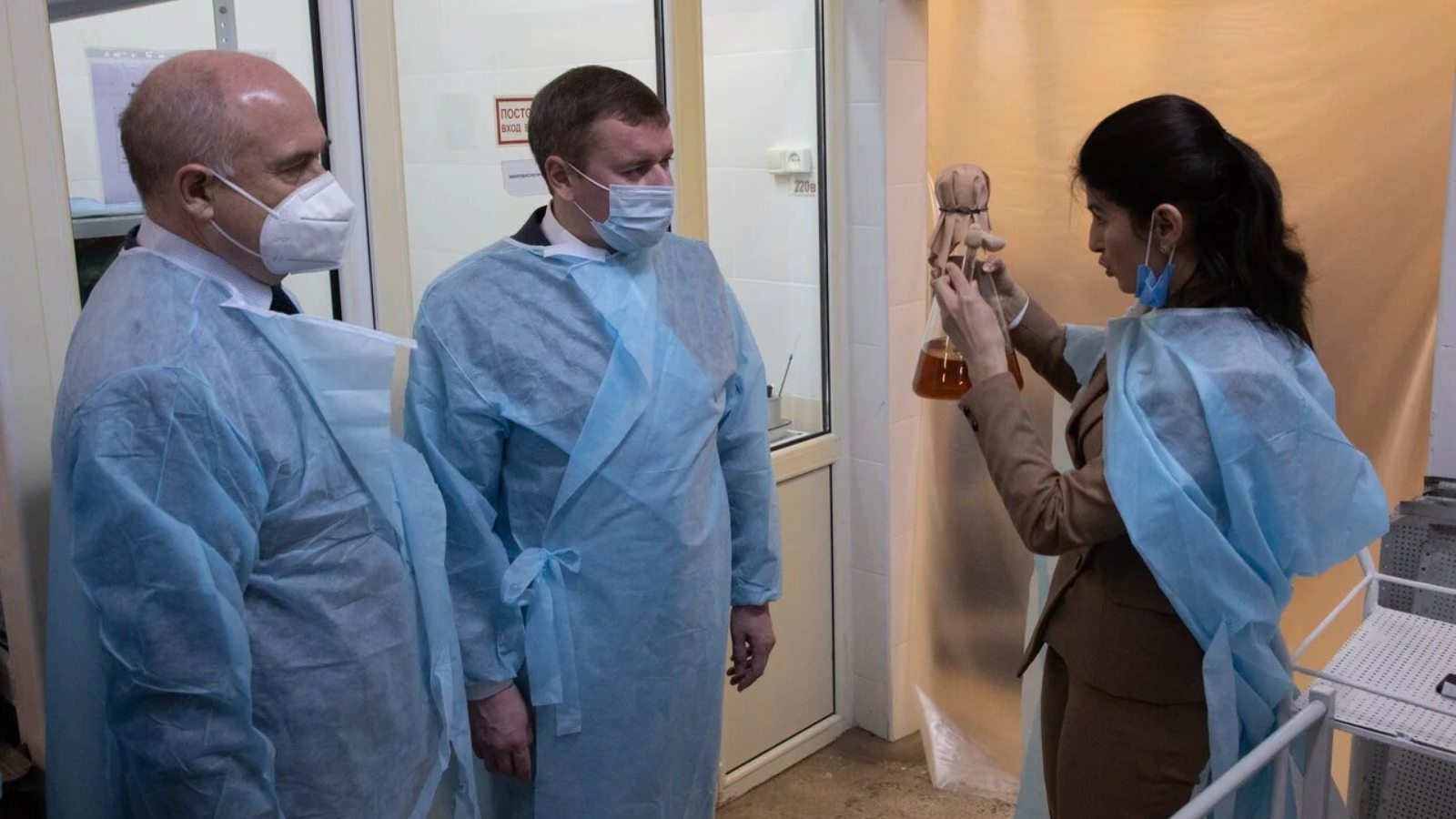Marat Zyabbarov studied where entomophages are produced and where GMOs are researched

Today, Deputy Prime Minister of the Republic of Tatarstan - Minister of Agriculture and Food of Tatarstan Marat Zyabbarov studied the work of the branch of the Federal State Budgetary Institution "Rosselkhoztsentr" in the Republic of Tatarstan.
The laboratories of the department are actively researching biological plant protection products, i.e. targeted use of living organisms and biologically active substances produced by them to reduce the damage caused to cultivated plants by pests and diseases.
One of the most interesting areas of work is the production of beneficial insects - entomophages by the Russian Agricultural Center. The head of the specialized laboratory Aigul Gabdrakhmanova told the minister about this. For example, the lacewing eats aphids and larvae of another 76 species of insect pests, as well as mites, while it does not cause any harm to plants. Each larva is capable of destroying up to 400 aphids, more than 2 thousand spider mites, about 300 eggs of the Colorado potato beetle and is effective for protecting melons, vegetables and fruit and berry crops.
Of particular interest is the gabrobragon, an entomophage that is able to protect fields from more than 60 species of pests, including moths. The gabrobragon lays its eggs in the larvae and caterpillars of other insects. Before depositing its embryos into larvae, the gabrobragon paralyzes the pest insect and it dies. The gabrobragon works especially effectively on cereals, vegetables and fruit trees.
A trichogramma shows the maximum efficiency and safety of the crop when processing sunflower, corn, sugar beet, wheat, vegetables and fruit crops. All entomophages can be used for the production of organic products.
Marat Zyabbarov also studied the production of biofungicides and the work of laboratories where the quality of grain and seeds is checked for the presence of GMOs, residual amounts of pesticides in products and soil, radionuclides, phytopathogens, nitrate content, etc.
The services of laboratories and biological plant protection products can be used by both agricultural producers and personal subsidiary plots. Telephone for consultations: 8 (843) 277-82-09.